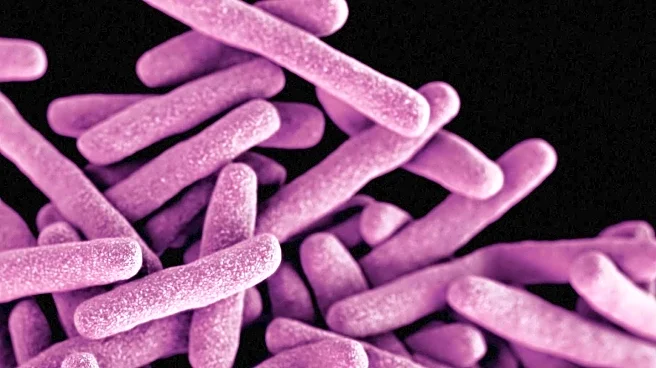What's Happening?
Researchers at the National Institute of Infectious Diseases in Tokyo have isolated three bacteriophages aimed at combating carbapenem-resistant Enterobacter cloacae complex (ECC) strains. These phages,
identified as vB_ECC_MY742, vB_ECC_YI837, and vB_ECC_CW742, were selected for their broad host ranges and strong lytic activity against clinical ECC strains collected from hospitals across Japan. The study highlights the potential of these phages for therapeutic applications, as they lack virulence and antibiotic resistance genes, making them suitable candidates for phage therapy. The research also notes the resistance of certain ECC strains, such as ST 78, to phage infection, suggesting the presence of unique defense systems.
Why It's Important?
The development of phages targeting carbapenem-resistant ECC strains is significant due to the increasing threat of antibiotic-resistant bacteria in healthcare settings. These phages offer a promising alternative to traditional antibiotics, potentially reducing the burden of drug-resistant infections. The study's findings could lead to the formulation of phage cocktails tailored to combat specific resistant strains, enhancing treatment efficacy. This research underscores the importance of phage therapy as a viable solution to address the growing challenge of antimicrobial resistance, which poses a significant risk to public health globally.
What's Next?
Future research will focus on identifying the specific receptors targeted by each phage to ensure the effectiveness of phage cocktails. Additionally, efforts will be made to improve the burst size of certain phages through phage training, enhancing their lytic capacity. The study also plans to explore the defense mechanisms of resistant ECC strains, such as ST 78, to develop strategies for overcoming phage resistance. These steps are crucial for advancing phage therapy as a practical treatment option for antibiotic-resistant infections.










